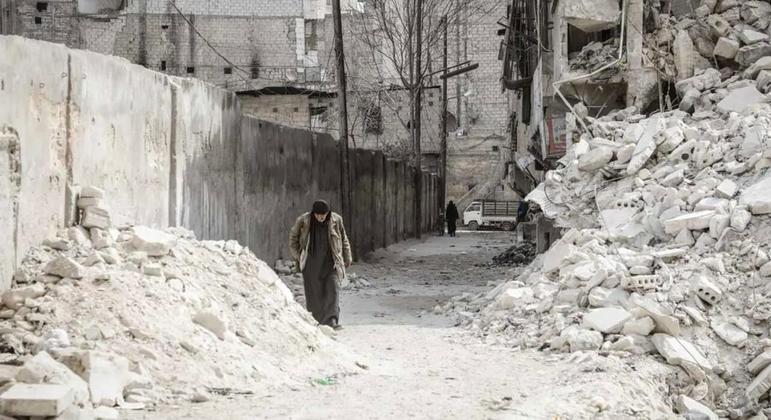Special Envoy Geir Pedersen recently briefed the UN Security Council on the urgent need for a political resolution to the ongoing violence in Syria. He highlighted the recent spike in violence, including airstrikes, rocket attacks, and clashes between armed groups, as well as ongoing protests over unaddressed grievances. Pedersen emphasized that there is no military solution to the challenges facing Syria and called for a comprehensive political solution to bring about peace and stability in the country.
The presence of six foreign armies in Syria is raising fears of further fragmentation and destabilization, adding to the complexity of the situation. Pedersen stressed the importance of unsticking the political track, which has been blocked and dormant, to move towards a resolution. He has held discussions with various government officials and international counterparts, including representatives from Russia, Iran, Turkey, China, Arab countries, the United States, and Europe, to push for progress on the political front.
The humanitarian crisis in Syria has only worsened due to the political impasse, with over 16.7 million people in need of humanitarian assistance. Seven million people remain displaced from their homes, and more than half of the population requires food assistance. Despite the overwhelming need, funding for humanitarian appeals has fallen to a record low, making it increasingly difficult for UN agencies like the World Food Programme to provide emergency food assistance to those in need.
UN Deputy Emergency Relief Coordinator Joyce Msuya highlighted the devastating impact of the lack of resources on humanitarian efforts in Syria. She noted that while UN agencies are doing what they can to bridge the gap, much more is needed to meet the massive levels of need and prevent further cuts to vital support services. Msuya emphasized the importance of delivering aid through all available routes, including cross-border aid deliveries from Turkey into northern Syria, which are critical for providing life-saving relief and essential services to vulnerable populations.
Msuya also stressed the need to protect civilians and respect international humanitarian law in Syria. She called for sustained and unhindered humanitarian access through all modalities, as well as the necessary funding to sustain critical aid programs. As the crisis in Syria enters its 13th year, the UN continues to call for a renewed and genuine commitment to a political solution to end the conflict and bring about peace and stability in the region. In the hope of a peaceful Ramadan for the people of Syria, efforts must be made to address the root causes of the crisis and work towards a lasting resolution.









